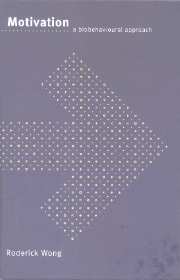Book contents
- Frontmatter
- Contents
- Preface and acknowledgements
- 1 Introduction and perspective
- 2 Mating and reproductive activities
- 3 Parental/maternal activities
- 4 Feeding activities
- 5 Food selection
- 6 Drinking activities
- 7 Stimulus seeking and exploratory activities
- 8 Aversive motivation systems: fear, frustration and aggression
- 9 Social motivation: attachment and altruism
- 10 Conclusions and retrospective
- References
- Author index
- Subject index
4 - Feeding activities
Published online by Cambridge University Press: 10 December 2009
- Frontmatter
- Contents
- Preface and acknowledgements
- 1 Introduction and perspective
- 2 Mating and reproductive activities
- 3 Parental/maternal activities
- 4 Feeding activities
- 5 Food selection
- 6 Drinking activities
- 7 Stimulus seeking and exploratory activities
- 8 Aversive motivation systems: fear, frustration and aggression
- 9 Social motivation: attachment and altruism
- 10 Conclusions and retrospective
- References
- Author index
- Subject index
Summary
Feeding is the means by which an organism acquires the materials for building, maintaining and moving the vehicle that carries the next generation. Since nutrition is the main requirement of all living systems, feeding preceded by food-seeking behaviour, is a necessity of life. Organisms must feed to live and they also must work to feed. Evolution has played a role in influencing the eating and drinking behaviour of all species. It has selected for the mechanisms that motivate the organism's ingestion of nutrients and its selection. There are two fundamental aspects of feeding: energy balance and diet selection. Energy balance deals with how much animals eat in relation to their energy expenditures, whilst diet selection deals with mechanisms that allow omnivores to choose the appropriate nutrients. This chapter will deal with the former and Chapter 5 will be concerned with the latter issue.
Organisms regulate their nutritional intake according to shortand long-term energy needs. The mechanism responsible for this regulation, which involves the maintenance of a constant, optimal, internal environment, is called homeostasis. This concept was introduced by Claude Bernard (1879) in his discussion of ‘le milieu intérieur’ and the necessity of the organism keeping its internal environment at a constant, optimal level. (For a detailed discussion of the key components of homeostatic mechanisms and their character of operation, see Schulze (1995).) An example that illustrates the concept of homeostasis is that of the thermostat. After it is set for a certain temperature, it reacts to deviations from that temperature (the set point) by changing the environment so that such deviations are eliminated.
- Type
- Chapter
- Information
- MotivationA Biobehavioural Approach, pp. 89 - 124Publisher: Cambridge University PressPrint publication year: 2000



